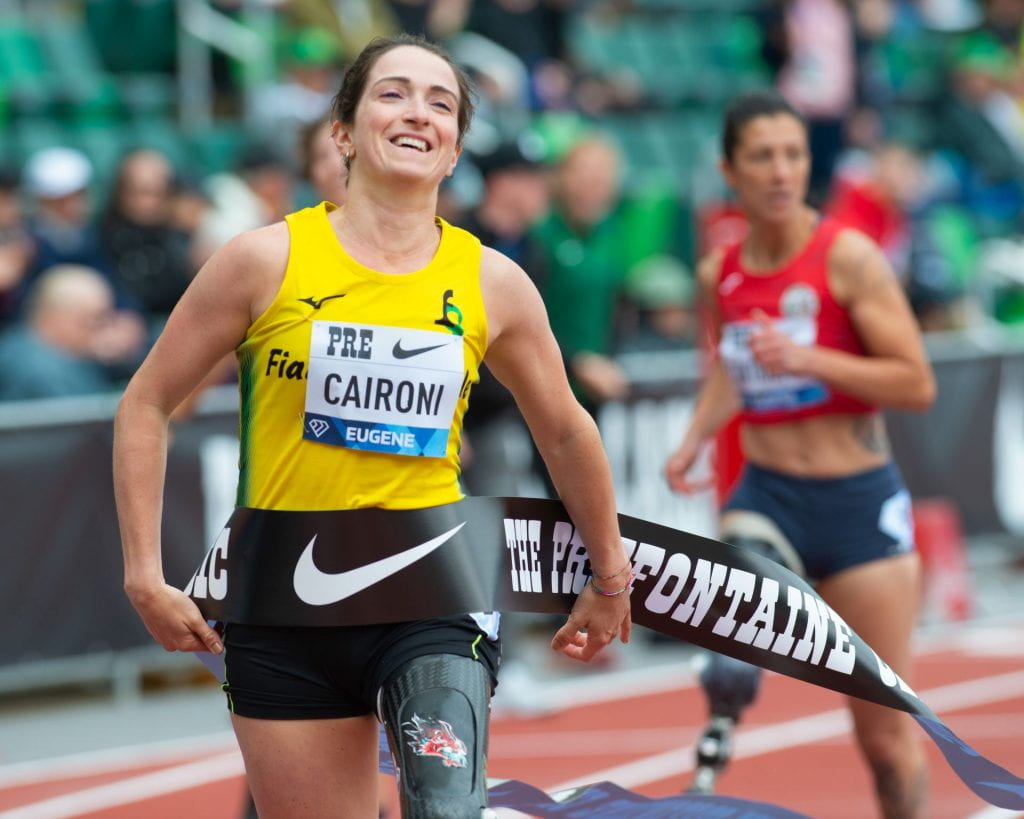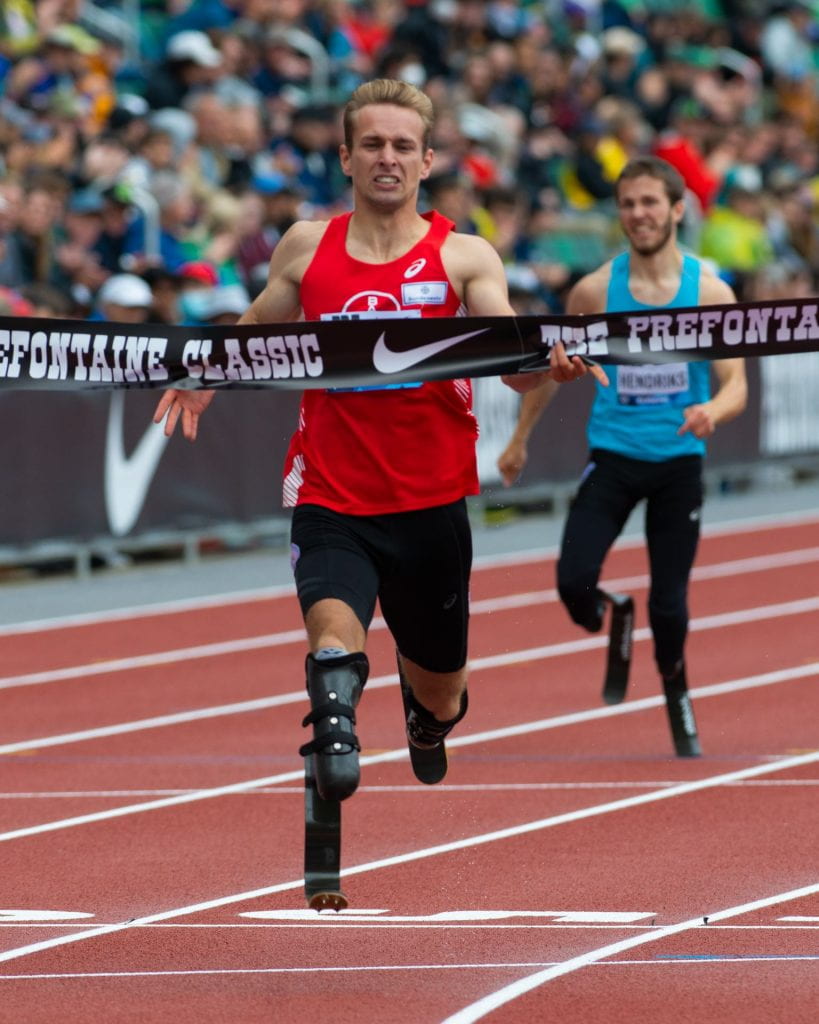
Martina Caironi won the women’s para T63 100 meters on what was a special day for all of the competitors. Photo by Chloe Montague
Scout Bassett’s emotions overcame her as she returned to her hotel room.
She had been touched by a collective feeling of awe at the dinner table where she sat with other para-athletes. Before the events even commenced, they shared a notion that the Prefontaine Classic was not like most events that hosted para-athletics.
“I think that every elite level Paralympic athlete deserves this,” Bassett said. “We put in so much work and we have so much passion for what we do. So I just hope that this is more of a norm.”
Para-athletes hadn’t competed at the Prefontaine Classic since 1989.
In 2022, all that changed. Para-athletes returned to the Prefontaine Classic and they felt they were greeted with a warm welcome. It also marked the first time in Bassett’s memory that the para-athletes received the same amount of prize money as their able-bodied counterparts.
“This is our Super Bowl,” T-62 400-meter runner Blaker Leeper said. “To have Paralympic athletes, it’s exciting. It goes to show what the world is fighting for with equality, with inclusion. It goes to show what Nike stands for and the Diamond League stands for to invite us and bring us in.
A month ago, when Bassett received her invitation she knew she could not turn down the opportunity. For her, receiving that invite was a milestone in a fight to help normalize para-athletics.
After finishing fourth Saturday in the women’s T-63100 meters, tears flowed down her cheeks as she looked back on the events of this past weekend.
“Everything I do, I’m always pushing for equality,” Bassett said. “This is big for our sport and it’s big for our movement because this is an indication of what the future looks like.”
After a 33-year hiatus, para-events returned to the Prefontaine Classic in the form of the women’s 100 meters and men’s 400 meters.

Johannes Floors of Germany said that he appreciated such an enthusiastic crowd after he won the men’s T62 100 meters. Photo by Chloe Montague
“Being here is just so awesome,” 400-meter winner Johannes Floors said. “Having a crowd that cheers for all the athletes no matter how fast, or how far.
Bassett and Leeper finished fourth in each of their respective races.
In order to prepare for this stage, both Bassett and Leeper withstood career-altering transitions of their own.
Along their journey, Bassett and Leeper have also fought hard to draw attention to the importance of para-athletes and para-athletic competitions.
At the 2011 para world championships, Leeper won a silver medal in the 400 meters and the 4×100-meter relay, along with a bronze in the 200 meters at the world championships. In July 2019 at the U.S. championships against able-bodied runners, he ran a personal record in the 400 of 44.38 seconds.
His goal was to qualify for the 2020 Tokyo Olympics before the Court of Arbitration for Sport ruled that his prosthetics gave him an unfair height advantage.
For 10 years, Leeper had competed at 6-foot-2. To comply with the rules, he needed to take six inches off his height to compete against able-bodied runners. He now competes with shorter prosthetic legs, which makes him 5-foot-8.
He has had to re-learn how to do everything at a different height.
“The biggest thing is the confidence,” Leeper said. “I’m running at top-end speeds… I have to trust my legs. I have to trust my system. I have to trust my mechanics to keep myself at that speed. So when you take that away, and I don’t have my confidence anymore, it’s now a guessing game.”
On Saturday, Leeper finished fourth in the 400-meter race with a time of 53.98. While that time left room for improvement, the opportunity to compete at the Prefontaine Classic was one of many stepping stones on his journey to reach the Paralympic Games.
Bassett ran a season-best 16.41 seconds, but she felt she could have done better.
“I think the two restarts were a little bit challenging because I’m a very good starter,” Bassett said. “I think the third time, I was feeling a little gun shy because I didn’t want to have another restart.”*
For Bassett, change has been the only constant throughout her life.
Recently, that was in the form of her training facilities and coach. After seven years at Chula Vista, Bassett switched her training home to the San Diego State campus with their head women’s track coach, Shelia Burrell.
“It was just getting a little bit stagnant for me and I wasn’t continuing to grow and evolve,” Bassett said. “I needed a change of scenery to be able to do that. Change can be hard. But it can also be really good and really healthy. For me, I’ve always just tried to keep in mind that something good is coming.”
All those hours of effort were put on display as they competed and earned respect at the Prefontaine Classic this weekend.